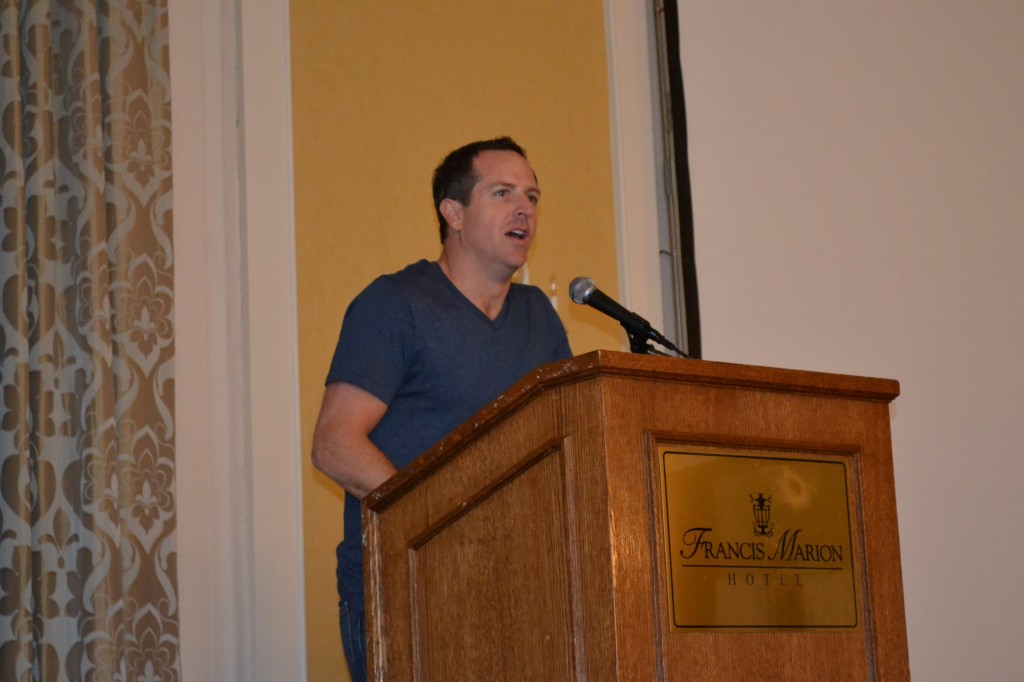
Despite the successes Hugh Howey has enjoyed as an author, he began his keynote at today’s PubSmartCon event by stating that his is not a road map to success that anyone should follow, largely because he doesn’t know where he’s going. The tongue-in-cheek opening to his presentation is only partly humorous; part of Howey’s charm and allure as a writer and a publishing industry watcher is that he is the first to admit that it is all largely surprising.
“Someone said we were going to outline roadmaps for how we got to where we are. I’m going to do two things: tell you not to follow me because I don’t know where I’m going, and to share with you all the really bad ideas I’ve had over the years. I narrowed it down to my top 5,000 bad ideas, and then the top 500, and I think it got it down to my worst fifteen or twenty.”
Howey recounted a humorous story about his first disastrous efforts at navigating a large sailboat, likening it to the current state of publishing. “Where we are as experts is we’re looking at yesterday and trying to tell you what tomorrow’s going to be like. It’s what weather forecasters and hurricane forecasters do. It’s not a very good road map. What’s exciting is that someone out there should be up here telling us what they think.”
In his typical humility, Howey disparaged the idea that interview subjects should be some of the bigger names in publishing. “The ones who should be up here giving talks are the midlist authors, traditional or self, who their lives are being changed by these new tehcnologies. No one interviews those people, they wait until they’re outliers. There are people out there who are making a living with their work and no one’s ever heard of them, that’s the real story of self-publishing.”
Howey went on to expand on a number of ideas that are currently held in the industry in an air of dispelling the myths. One of the more profound ideas is that the rise of retail giant Amazon has actually been a good thing for independent book stores, as he outlined by demonstrating that shoppers who go to Amazon are looking for books whose titles they know in order to have a discount, but that the loss of browsing opportunities like Borders forced more consumers to look for book recommendations in smaller stores where individuals knew their customers.
In that vein, Howey supported the idea that self-published authors, long suffering from difficulty in getting their books placed in physical bookstores, shouldn’t concern themselves with the placement of their work in physical bookstores as the majority of sales are coming from online retail outlets.
More important is Howey’s concept of the weather forecaster, understanding that looking at what has worked in the past is not the safest bet when it comes to understanding how publishing is changing.
“Looking at trend lines is a bad idea for where this industry is going. The reason this industry is changing is the cost of producing and distributing books has plummeted to almost zero. When there’s a market force like this, it upsets an entire industry.”
Mercy Pilkington is a Senior Editor for Good e-Reader. She is also the CEO and founder of a hybrid publishing and consulting company.